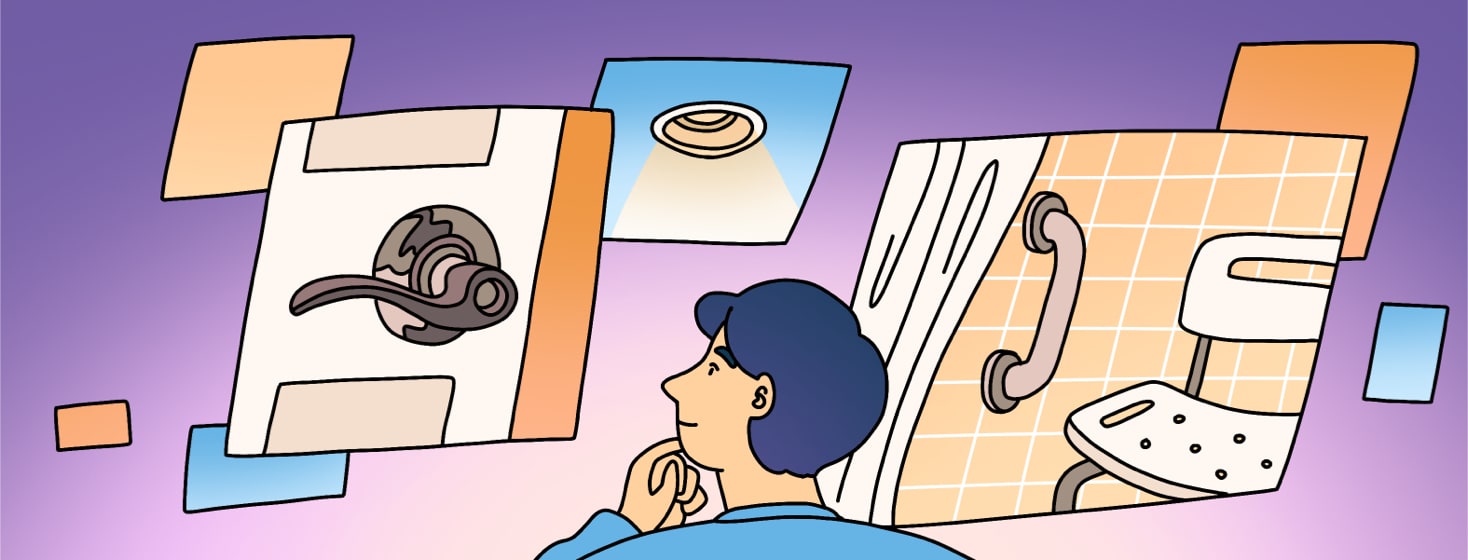Why I Made My Home Wheelchair Accessible Sooner, Not Later
"Why do you think you would need wheelchair-accessible doors in your home?"
I answered simply that I was previously required to obtain a wheelchair and utilize it to participate in outings for a period due to my health.
This question bounced around my mind, sounding odd to me. Why wouldn't I think I may need a wheelchair-accessible home in the future? Isn't that a thought everyone has at some point?
Why I planned for a wheelchair accessible home
Preparing for our health needs now and in the future is a familiar experience to many of us with chronic illnesses. Perhaps it's not so common among healthier individuals, but I can't help but think of it frequently. How do you view and plan your future health needs?
When I was considering building my own home, I was going to build it with all accessible features from the beginning. And not just for myself but also for my parents because I was planning for them to have the option to reside with me. Ultimately, life changed, and I bought an older house instead of building new.
Making my bedroom, bathroom, and closet accessible
Therefore, when my life partner and I decided to complete renovations to our bedroom, it was the perfect time to make not only the bedroom doors disability accessible but also our bathroom and closet.
We turned the shower into a walk-in with safety bars and a shower chair, and put a higher toilet in the bathroom. I kept all door handles and faucets as levers rather than knobs. My exterior doors were already wheelchair accessible, and now, if need be, I will be able to wheel myself to the areas I would most need to access in my home. I also installed recessed lights in all rooms to increase visibility for myself and my mother, who has visual impairments.
Why it helped to make modifications early
I was fortunate to be able to make these modifications now rather than waiting until I could no longer wait – a time which would likely be more financially stressed than now. This allowed for proper planning and financing.
Even though I have not required my wheelchair for over a decade, small changes, such as a higher toilet, shower chair, and safety hand bars in the shower, can be monumental for accessibility and independence.
Small changes that improved my daily life
There are many times when showering, I become too fatigued and weak to stand or unsteady. The smallest aid I've added to the shower is a handheld hair scrubber. This has been amazing for when my arms ache too much to wash my hair without it.
Even when I require assistance with bathing, a shower chair significantly increases the ease of bathing assistance for me and my life partner. My parents installed a shower chair attached to their shower walls; however, I chose a standalone one. I preferred this option as its position can be moved wherever desired or even completely removed. A benefit of my parents' wall-attached shower chairs is that they are more heavy-duty and sturdier. However, they take up more space even when folded against the shower wall.
Lastly, a small but essential safety change I made was removing any rugs that could easily allow for entanglement. My mother advocated for this change as she often was stumbling over my kitchen rug. I replaced it with a sturdy, anti-fatigue standing mat, and we have both enjoyed this change. Not only is it more comfortable physically, but it hasn't posed any safety concerns.
Is your home ready for accessibility needs?
There may be more modifications to make in the future, but for now, I am comfortable and feel safer with the ones we have put in place.
What are your must-have home modifications for accessibility? What's on your modification wish list?

Join the conversation